The Science of Tagatose
What scientific evidence is there to support the use of Tagatose?
“Consumption of foods/drinks containing tagatose instead of other sugars induces a lower blood glucose rise after their consumption compared to sugar-containing foods/drinks.
Consumption of foods/drinks containing tagatose instead of other sugars contributes to the maintenance of tooth mineralization.”

-
 Low glycaemic index and insulin-independent metabolism, leading to a minimal impact on blood glucose levels.
Low glycaemic index and insulin-independent metabolism, leading to a minimal impact on blood glucose levels.
-
 Has been found to increase levels of GABA in the brain, a neurotransmitter associated with relaxation.
Has been found to increase levels of GABA in the brain, a neurotransmitter associated with relaxation.
-
 May improve lipid profiles by reducing LDL (low-density lipoprotein) cholesterol levels.
May improve lipid profiles by reducing LDL (low-density lipoprotein) cholesterol levels.
-
 Tagatose promotes hepatic glycogen storage and prevents glycogen breakdown, this helps the body store more energy for longer while reducing blood glucose levels.
Tagatose promotes hepatic glycogen storage and prevents glycogen breakdown, this helps the body store more energy for longer while reducing blood glucose levels.
-
 Tagatose has prebiotic properties that can promote the growth of beneficial gut bacteria and help remove toxic ammonia from the body. It has also been shown to protect against leaky gut and inflammation caused by pathogens and toxins.
Tagatose has prebiotic properties that can promote the growth of beneficial gut bacteria and help remove toxic ammonia from the body. It has also been shown to protect against leaky gut and inflammation caused by pathogens and toxins.
-
 Tagatose consumption has been shown to have a positive impact on the immune system by reducing inflammation and supporting healthy immune function.
Tagatose consumption has been shown to have a positive impact on the immune system by reducing inflammation and supporting healthy immune function.
-
 Tagatose has a very low glycaemic index and doesn't cause a significant increase in insulin levels, making it a suitable sugar substitute for those with diabetes.
Tagatose has a very low glycaemic index and doesn't cause a significant increase in insulin levels, making it a suitable sugar substitute for those with diabetes.
-
 Tagatose is metabolized in the liver without the need for insulin, so it doesn't lead to fat deposition in the liver. Studies have also found that it may reduce liver inflammation and improve insulin sensitivity.
Tagatose is metabolized in the liver without the need for insulin, so it doesn't lead to fat deposition in the liver. Studies have also found that it may reduce liver inflammation and improve insulin sensitivity.
-
 Tagatose has been shown to inhibit the growth of harmful oral bacteria that cause tooth decay and gum disease. It can also help prevent mineral loss from tooth enamel, protecting against cavities.
Tagatose has been shown to inhibit the growth of harmful oral bacteria that cause tooth decay and gum disease. It can also help prevent mineral loss from tooth enamel, protecting against cavities.
-
 Tagatose can serve as a building block for the creation of cerebrosides and gangliosides, which are important glycoproteins found in the nervous system.
Tagatose can serve as a building block for the creation of cerebrosides and gangliosides, which are important glycoproteins found in the nervous system.
Dr. Coy and Intelligent Sugar Research
Award winning scientist Dr. Johannes Coy discovered the TKTL1 gene. This gene allowed modern humans to evolve from our Neanderthal ancestors.
Homo sapiens produce more neurons in the frontal lobe than Neanderthals due to a single amino acid change in the protein TKTL1.
Unfortunately, our modern diet contains an excess of glucose, fructose and sucrose (‘classic sugars’) and we need half the calories our ancestors needed to survive. This has turned TKTL1 against us.
Classic sugars spike blood sugar, causing inflammation, insulin resistance and disease. The epidemic of lifestyle diseases, like diabetes and cancer, are driven by TKTL1 and our sweet excess. But it doesn’t have to be this way.

“The suffering for those affected, and their relatives (as well as the financial impact on society, and the burden on the next generation) could be avoided, if knowledge about the importance of blood sugar levels were implemented promptly, and our diet adapted to today’s situation with little physical exercise and a lot of stress”
Dr Johannes Coy
Want to know more?
If you would like to learn more about the extensive research supporting the way tagatose impacts wellness, here is a small sample of some studies we think you’ll find interesting.
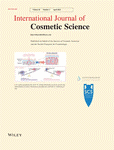
Removal and prevention of dental plaque with d-tagatose
The International Journal of Cosmetic Science published a study on removing and preventing dental plaque with tagatose.

Tagatose: from a sweetener to a new diabetic medication?
This study tested the dietary effect of the consumption of tagatose in type 2 diabetes and its ability to be a functional food for diabetics.
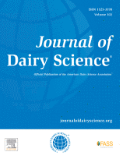
Benefits of Tagatose for Gut Health
This study investigated the effects of combining a probiotic strain (Lactobacillus rhamnosus GG) with a prebiotic (tagatose) as a synbiotic in a mouse model of colitis. The results showed that the synbiotic combination improved body weight, food intake, and clinical symptoms in the mice with colitis. The synbiotic also restored the gut microbiota composition that was disrupted by colitis, with significant increases in Bacteroides, Lactobacillus, and Akkermansia. The study suggests that synbiotics could be used as dietary supplements to promote gastrointestinal health.

D-Tagatose Is a Promising Sweetener to Control Glycaemia: A New Functional Food
Studies have shown that tagatose has low glycemic index, a potent hypoglycemic effect, and eventually could be associated with important benefits for the treatment of obesity. The authors concluded that D-tag is promising as a sweetener without major adverse effects observed in these clinical studies.

D-Tagatose: A Rare Sugar with Functional Properties and Antimicrobial Potential against Oral Species
D-tagatose, a low-calorie rare sugar, offers significant health benefits, particularly for oral health. With antioxidant and prebiotic properties, it has a low glycaemic impact, supports lipid profile improvement, and shows potential in managing diabetes and obesity. Studies highlight its antibacterial effects, including reducing cariogenic bacteria like S. mutans, inhibiting biofilm formation, and preventing pH decline. D-tagatose also promotes oxidative stress reduction and demonstrates effectiveness as an air-polishing powder for biofilm removal. These attributes position D-tagatose as a promising alternative sugar for preventing systemic diseases and enhancing oral health.

D-Tagatose Feeding Reduces the Risk of Sugar-Induced Exacerbation of Myocardial I/R Injury When Compared to Its Isomer Fructose
This study compared the effects of fructose and D-tagatose-enriched diets on myocardial injury in rats. While fructose increased body weight, impaired metabolic profiles, and worsened oxidative stress, inflammation, and myocardial damage, D-tagatose reduced oxidative stress, inflammation, and plasmatic inflammatory cytokines while increasing myocardial nitric oxide synthase expression. These findings suggest D-tagatose is a healthier sugar alternative with less harmful effects on metabolism and heart susceptibility to ischemia/reperfusion injury.
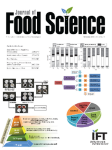
Tagatose as a Potential Nutraceutical: Production, Properties, Biological Roles, and Applications
D-tagatose is a low-calorie nutraceutical that has potential applications in the food and feed industries due to its antidiabetic properties and beneficial effects on gut bacteria. While d-tagatose is present in small amounts in natural foods, it is mainly produced via chemical or biological means. The article provides an overview of the current state of d-tagatose production, properties, and applications.
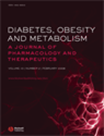
Tagatose, a new antidiabetic and obesity control drug
Early human studies suggested tagatose as a potential antidiabetic drug through its beneficial effects on postprandial hyperglycaemia and hyperinsulinaemia. A subsequent 14-month trial confirmed its potential for treating type 2 diabetes, and tagatose showed promise for inducing weight loss and raising high-density lipoprotein cholesterol, both important to the control of diabetes and constituting benefits independent of the disease.

Gut microbes modulate neurodegeneration
A recent study investigated the role of gut microbes in tau-mediated neurodegeneration, a major factor in Alzheimer’s disease. The study found that gut bacteria play a causative role in inflammation in the central nervous system and peripheral tissues, leading to neurodegeneration. The inflammation was found to be dependent on the specific isoform of apolipoprotein E and was sex-specific. The study highlights the importance of understanding the interplay between gut microbes, APOE, and tau in the development of Alzheimer’s disease.

Safety and Efficacy of D-Tagatose in Glycemic Control in Subjects with Type 2 Diabetes
This study evaluated the effects of D-tagatose on glycaemic control and its safety in type 2 diabetic patients not using blood glucose-lowering medications. Patients received either 15 g of D-tagatose or a placebo with meals. D-tagatose significantly reduced HbA1c levels compared to placebo at all time points and achieved secondary outcomes, including lower fasting blood glucose, LDL, and total cholesterol levels. However, it did not affect triglycerides or HDL. A subgroup analysis confirmed greater HbA1c reductions with D-tagatose. These findings suggest D-tagatose is an effective single agent for managing type 2 diabetes targets, including glycaemic control and cholesterol reduction.
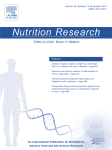
Dietary supplementation with d-tagatose in subjects with type 2 diabetes leads to weight loss and raises high-density lipoprotein cholesterol
This pilot study investigated the effects of daily D-tagatose (15 g, three times daily) over 12 months in subjects with type 2 diabetes. Significant reductions in body weight and increases in HDL cholesterol were observed, while glycated haemoglobin showed a nonsignificant decrease. These findings suggest D-tagatose may be a promising adjunct for managing type 2 diabetes, with mild and transient gastrointestinal side effects reported.
Latest News & Insights
The Warburg Effect: Diet and Cancer (the latest evidence)
In 1931 Otto Warburg won a Nobel Prize for his research into tumours, and cancer cells. He discovered that healthy cells and cancer cells ‘breathe and eat’ (metabolise) very differently.
Empowering Women with Cancer: An Interview with Caroline Justich, Founder of Be accepted
Inspirational and cancer-defying, Caroline Justich is the founder of Be accepted, Home of the smart 8, an initiative for women diagnosed with cancer.



